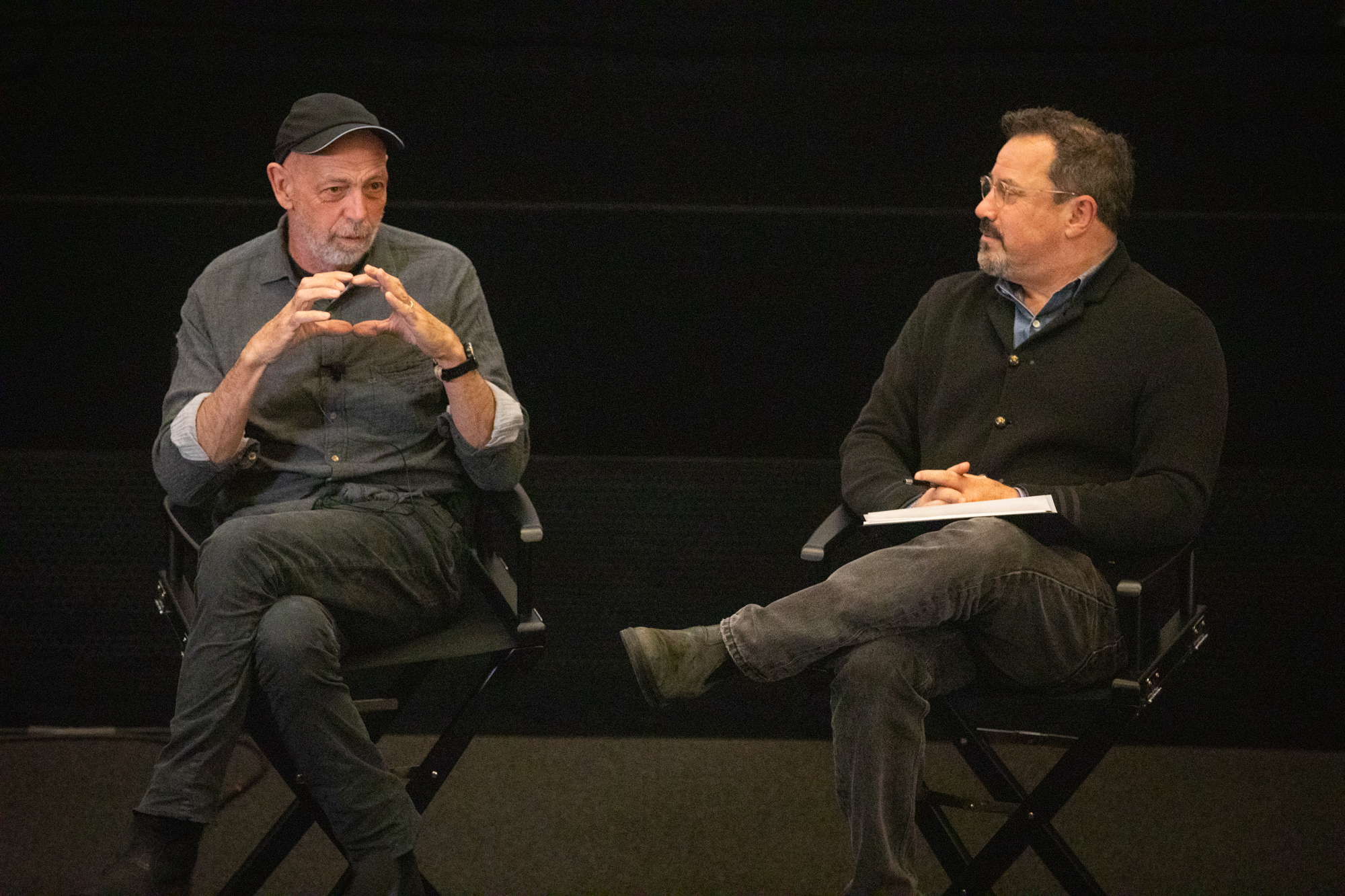Cinematographer brings expert knowledge to filmmakers at Brooklyn College
Stuart Dryburgh meets with students to talk about the art of movie-making

On Thursday, the Feirstein Graduate School of Cinema at Brooklyn College kicked off another installment of their new Filmmaker-In-Residence Program by holding a Q&A session with the Brooklyn-based Cinematographer Stuart Dryburgh.
Students, alumni, and faculty were invited for a screening of the Academy Award-winning film “The Piano”, directed by Jane Campion and for which Dryburgh was nominated for Best Cinematography. After the screening, the room overflowed with those clamoring for an opportunity to pick the brain of a lauded and instrumental figure in modern cinema (Dryburgh has worked with such directors as Martin Scorsese and Ben Stiller in addition to Campion).
First though, came a career-spanning conversation between Dryburgh and the graduate school’s executive director Richard Gladstein – who is, himself, a two-time Academy Award-nominated film producer who has worked on many big-budget Hollywood pictures and collaborated closely with director Quentin Tarantino.

Brooklyn Boro
View MoreNew York City’s most populous borough, Brooklyn, is home to nearly 2.6 million residents. If Brooklyn were an independent city it would be the fourth largest city in the United States. While Brooklyn has become the epitome of ‘cool and hip’ in recent years, for those that were born here, raised families here and improved communities over the years, Brooklyn has never been ‘uncool’.